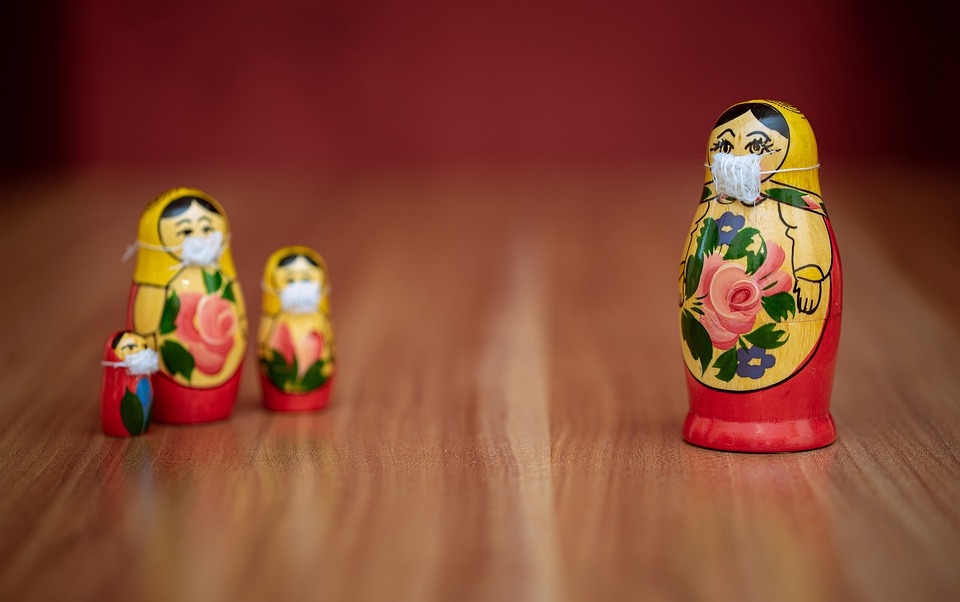
It’s a challenging time for working parents with young children. If they are considered essential workers and must leave their homes, they may struggle with childcare needs that are difficult to meet. If they are fortunate enough to continue their jobs by working from home, they may struggle with the competing agendas of work while homeschooling and entertaining their children.
Interestingly, with the cancelation of nearly all of children’s organized activities, children are being forced to occupy themselves, to learn to play independently without being directed by an adult. In the New York Times, Kate Rope, author of Strong as a Mother: How to Stay Healthy, Happy, and (Most Importantly) Sane from Pregnancy to Parenthood,notes
Research has shown that our heavily scheduled lives have contributed to a significant decrease in the amount of free time kids have, so their independent play skills may not be ready for the moment we are facing.
Drawing from a variety of child development experts, Rope offers some prescriptive advice for parents to help their children develop the capacity to play alone: allot some time to play with them, devoting full attention and then tell them gently that you need to work; make sure your children have a variety of toys available; allow for a mess; allow for a space to move around; be aware that different children play differently and that attention span grows with development.
What Rope and her panel of experts omit is any mention of Winnicott, whose article “The Capacity to Be Alone” (1958) theorizes about the way in which such a capacity develops. Winnicott calls the capacity to be alone ” one of the most important signs of maturity in emotional development.” Indeed, especially in western culture, when independence is highly valued, the capacity to think, play, and act on one’s own is, indeed, an important developmental achievement.
However, Winnicott does not believe that this capacity emerges from within the individual child on his/her own. Rather, it is rooted in a secure attachment to a parent. Without acknowledging Winnicott’s work, one of Rope’s experts, Lawrence J. Cohen, author of Playful Parenting, says just this:
It’s a bit of a paradox, but independence and exploration are not the opposite of dependence, safety and security. They flow from them.
In Winnicott’s words,
Although many types of experience go to the establishment of the capacity to be alone, there is one that is basic, and without a sufficiency of it the capacity to be alone does not come about; this experience is that of being alone, as an infant and small child, in the presence of mother.
Cohen stresses what Winnicott had theorized, that the development of a healthy human capacity to think and act independently is predicated on a secure and reliable attachment with a parent.
In Winnicott’s more psychoanalytic language,
In the course of time the individual introjects the ego-supportive mother and in this way becomes able to be alone without frequent reference to the mother or mother-symbol.
In other words, once the mother has been internalized and established in the child’s developing psyche, he/she can feel safe in exploration and play without her actual presence and even without the transitional object (or special stuffed animal or blanket that stands in for or symbolizes her presence).
For Winnicott, the capacity to be alone is intrinsically bound up with the provision for the child of a safe and predictable environment, such that “the individual can only achieve the ‘I am’ stage because there exists an environment which is protective.”
A child whose environment has been safe and predictable and who, by school age, has already established the capacity to be alone, will most probably make the transition to playing alone in quarantine fairly easily. Even if most of her activities before quarantine were highly structured, with a little help such as that which Rope suggests, she will discover the pleasures and joys of unstructured, imaginative play. However, children whose environment may not have been safe and predictable, and whose only sense of internalized safety has come from the overly structured play experiences of play dates, organized sports, and organized cultural activities may struggle with anxiety when they are left to their own devices. They may need additional intervention to help them develop the internal psychological structures along with, in Winnicott’s words, “a belief in a benign environment,” before they can play independently without overwhelming anxiety.
Next week, I’ll discuss the consequences of the loss of friends and reliance on siblings as the only in-person friends while families are quarantined.

